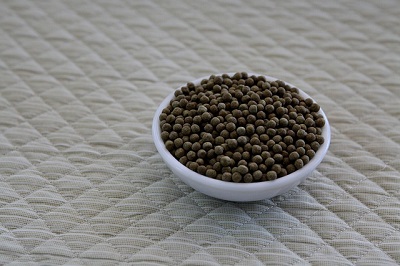Seminal Vesiculitis: A Major Threat, But TCM Can Help
Seminal vesiculitis, an unignorable disease in the male reproductive system, brings many men distress and pain.

Hematospermia(blood in semen) is one of its most prominent symptoms. When a man ejaculates during sexual intercourse or masturbation, he may notice that his semen appears red or pink or contains blood clots, causing great panic and psychological stress.
Seminal vesiculitis can also cause lower abdominal pain, which may radiate to the perineum and groin area, affecting normal walking and sitting. This pain often worsens during sexual intercourse or prolonged sitting, severely disrupting the patient's daily life.
Moreover, seminal vesiculitis may lead to male sexual dysfunction, such as erectile dysfunction and premature ejaculation. This not only affects the quality of sexual life between couples but can also impact the relationship to some extent.
If long-term seminal vesiculitis is not effectively treated, it may cause other urogenital system inflammations like epididymitis and prostatitis, further worsening the condition. Additionally, seminal vesiculitis can affect the quality and vitality of sperm, potentially leading to male infertility.
How does traditional Chinese medicine (TCM) play a role in addressing the hazards of seminal vesiculitis?
TCM believes seminal vesiculitis is caused by phlegm dampness and blood stasis obstructing the pathways, with blood flowing outside the vessels. The primary treatment is to promote qi circulation, activate blood, and stop bleeding.
Depending on different situations, TCM applies syndrome differentiation and treatment based on various aspects, such as qi stagnation, blood stasis, damp heat, fire due to yin deficiency, and cold coagulation.
For the damp-heat descending type, patients often present with frequent urination, urgent urination, and painful urination, accompanied by hematospermia, large amounts of turbid semen, and perineal swelling pain, with a yellow greasy tongue coating. TCM treatment mainly focuses on clearing heat, removing dampness, cooling blood, and stopping bleeding.
Patients with qi stagnation and blood stasis type of seminal vesiculitis often show symptoms of recurrent hematospermia, blood clots in the semen, lower abdominal and perineal pain, and a dark purple tongue or with petechiae. The treatment principle is to promote qi circulation, dissolve stasis, activate blood, and stop bleeding.
Seminal vesiculitis of the yin deficiency with hyperactivity of fire type commonly manifests as a small amount of red hematospermia, soreness and weakness of the waist and knees, dizziness, tinnitus, irritability, insomnia, dry mouth, and throat, with a red tongue and little coating. The primary TCM treatment is to nourish yin, reduce fire, cool the blood, and stop bleeding.
For stubborn and long-term untreated cases, the Diuretic and Anti-inflammatory Pill is more suitable. The pill has the effects of clearing heat and detoxifying, promoting blood circulation and qi, relieving pain, and promoting urination to alleviate dribbling. It can eliminate inflammation, relieve pain, and ease discomfort, such as swelling and enlargement.
The synergistic effect of various Chinese herbal medicines in this formula exerts powerful therapeutic effects. When taking this medicine, one should follow the doctor's advice, adhere to the prescribed dosage and course, and pay attention to dietary taboos and lifestyle adjustments to enhance treatment efficacy.
In addition to herbal prescriptions, TCM offers other unique therapies:
Acupuncture can promote blood circulation, remove blood stasis, and unblock meridians, alleviating pain. Acupuncture points such as Sanyinjiao and Yinlingquan are used, and it is necessary to have it performed by a professional doctor.
Massage can accelerate local blood circulation, providing auxiliary effects in improving swelling and pain, but the pressure must be adequately controlled.
TCM also emphasizes the importance of dietary adjustments in treating seminal vesiculitis. Patients should avoid spicy, greasy, and irritating foods like chili, fried foods, and alcohol. They should eat more foods with the effects of clearing heat, removing dampness, nourishing yin, and reducing fire, such as winter melon, bitter melon, mung beans, and lily.
Regarding lifestyle habits, TCM advises patients to maintain regular routines and avoid staying late and overworking.
Moderate exercise helps strengthen the body, but intense and long cycling periods should be avoided. Personal hygiene, especially the cleanliness of the genital area, should be maintained, and unclean sexual activities should be avoided.
It should be noted that TCM treatment for seminal vesiculitis requires time and patience, and patients should not be impatient for quick results. During the treatment, regular check-ups are necessary so that doctors can adjust the treatment plan based on changes in the condition.
In summary, although seminal vesiculitis poses significant hazards, TCM provides effective treatment methods for patients with its unique theories and rich treatment experience.
You may also be interested in:
Does Seminal Vesiculitis Require Surgical Treatment?
Seminal Vesiculitis Has Two Types With Different Symptoms: What's Your Type?
What are the Chinese Herbal Medicines for Treating Seminal Vesiculitis?



